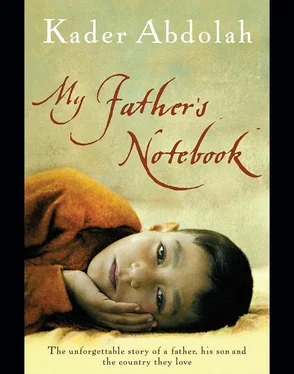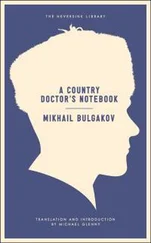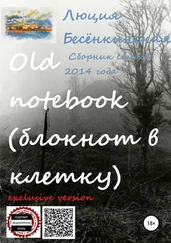Prince Willem-Alexander, for example, came to my aid.
The Dutch crown prince was interviewed on television. No fewer than 3.1 million viewers watched the interview, which was billed as the most important one of his life. The prince want ed everyone to realise that he’d become an adult, that he was now independent of his mother, the Queen. He wanted to show the Dutch public that he was ready to assume responsibility for weighty matters.
His lower lip trembled. Independence was apparently not at all easy. Still, it was a valiant attempt, in the presence of three million viewers, to step out from under the shadow of his dominant mother.
He emphasised the fact that he wasn’t a mummy’s boy, that he was a person in his own right.
“Is your mother your most important adviser?” the interviewer asked.
“Yes,” he replied, “because I’m being groomed for her position.”
“Which of your mother’s characteristics would you like to adopt?”
“I’m Willem-Alexander, I’m me. I don’t wish to adopt any of her characteristics. You can’t adopt other people’s characteristics.”
The prince tried to keep the questions involving his mother to a minimum and to move on to the next subject, but the interviewer kept harking back to his mother.
What I liked about the interview was not so much the discussion as the underlying psychology. In the course of that long conversation, he said very little about his father. He never once managed to say his father’s full name. It was as though the man didn’t belong to the royal household, as if he were a ghost, a mere shadow.
I’ve seen the Queen on television several times and often listened to her on the radio. I even know some of her speeches by heart. For example, here’s the end of one of her annual speeches to the Parliament:
As we reach the end of this century, it is time to take stock. Much that is good has been achieved in the Netherlands. Many people have contributed to that success. In an awareness of our strengths, while never losing sight of our weaknesses, this gives us confidence for the future. In the new century, too, we shallall need to invest in the quality of our society and in international cooperation. The government will continue its unceasing efforts to achieve a strong economy and a vital society. In doing so, it will work with you, with other tiers of government, and with every member of society. I sincerely hope that you will discharge your responsible duties with dedication and commitment, in the confidence that many people join me in wishing you wisdom and praying that you will be blessed.
I can’t remember even one speech given by her husband, Prince Claus. It’s all a blank.
Of course I saw him on TV at the award ceremony when he took off his tie, but even though I was listening to his speech carefully, I didn’t hear the words. Or, rather, I did, but his words didn’t reach me, didn’t get through to me. It was as if he used gestures rather than words.
I was accustomed to thinking of him as the father who didn’t talk, as a watcher, an observer. Now that he was actually saying something, it didn’t seem to fit my image of him.
I like the man. Whenever the royal family appears on TV — on the Queen’s birthday, for example — I enjoy watching him, the father, walking circumspectly behind his sons with his hands clasped behind his back.
I like the Queen, too, when she takes her husband’s arm and walks beside him with her head held high. If she ever angrily smacked him on the head and screamed, “You’re a millstone around my neck. I wish you were dead, dead, dead,” I’d despise her.
Tina did that once to my father. I heard her screaming, so I raced inside and saw her hitting my father over the head with her hands and shouting, “I wish you were dead, dead, dead!”
Suddenly she caught sight of me and her arms stopped in mid-air.
Later I heard from Golden Bell that it wasn’t the first time Tina had hit him.
“I saw it with my own eyes,” Golden Bell told me, weeping into the phone.
To this day, I can’t forgive Tina for that. And yet she did a lot for my father, not the least of which was providing an element of stability in his life. She’s suffered greatly and shown time and again that she can be strong in the face of adversity.
Although Prince Willem-Alexander didn’t come out and say it in the interview, I could see that he had trouble with his mother’s shadow. I have trouble with my father’s shadow. If the prince thinks he’s cast off that giant shadow, he’s mistaken. You can never shake off the shadows of such influential people, not even when they’re dead.
It only gets worse when they’re dead. They come back into your life stronger than ever. They haunt you in your sleep.
Even from his grave, my father casts a shadow over my computer. When I went away to the University of Tehran, I decided to distance myself, both physically and mentally, from my father, but I couldn’t. Somehow a new form of contact sprang up, more intense than ever.
When I left home, I thought my father would have to learn to stand on his own two feet. Suddenly I discovered that I didn’t function well on my own. Not having to shoulder the burden of my father left me off-balance. I pretended to be strong when I actually wasn’t.
My father was my strength as well as my weakness. Compared to other students, I was a man of experience, which is why I made rapid strides in the party. On the other hand, I was worried about my family, and that kept me from advancing any further.
At the end of my third year, my contact person ordered me to sever all ties with my family. Until then I’d been going home occasionally, but now I wasn’t even allowed to phone. At his urging, I also dropped out of school. According to the party, a revolution was at hand and we needed to be prepared.
I was overcome with guilt at having deserted my family and was so concerned for them that I suffered a loss of self-confidence. I realised that I couldn’t go on like this. It was time to discuss the matter with my contact person.
Before going on with the story, however, I’d like to say a few words about the resistance movement. Every Persian schoolchild dreamed of going to the University of Tehran. And yet we had a saying: “You can get in, but you may not get out again.”
That’s because the underground leftist guerrilla movement against the shah had its roots in the university. The movement’s three main slogans were: “Down with the shah!”, “Bread for the masses!” and “Long live freedom!”
The red banner on its underground newspaper read “Freedom or Death!” When I started at the university, there were dozens of shoot-outs on the streets of Tehran between the party’s armed faction and the shah’s secret police. Time after time, they uncovered the hiding place of the leaders, then moved in with helicopters and tanks. But the leaders never let themselves be taken alive. They fought until they had no more bullets left, then swallowed a suicide pill as the police burst in to arrest them. Every shoot-out was followed by an eruption of violence at the university.
It was in those turbulent times that I went through my personal crisis.
I made an appointment to meet my contact person at a teahouse in a remote area on the outskirts of Tehran. It was the first time I’d talked to him about my father. “I can’t break the ties with my family. I have to stay in touch with my father. It’s necessary for him as well as for me. Without that, I can’t function properly within the party.”
Permission was denied. It was too risky. If the agents of the secret police arrested me at my parents’ home, I could endanger the party.
An idea flashed into my mind. “My father’s shop, his disability, his contact with the villagers near the border could be … I mean, I could get him to … What I’m trying to say is that his shop and his knowledge of the mountains could be of use to the party.”
Читать дальше












